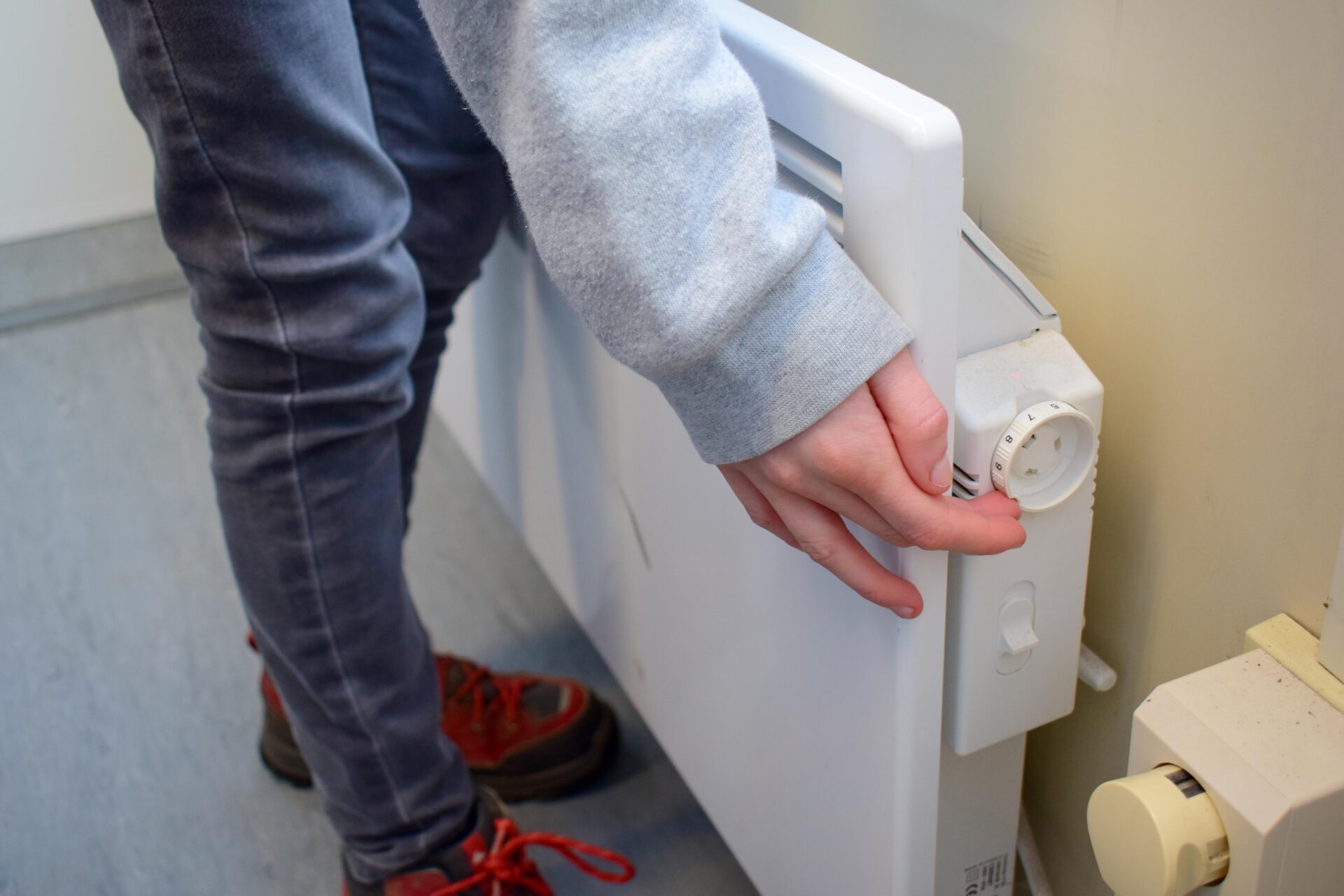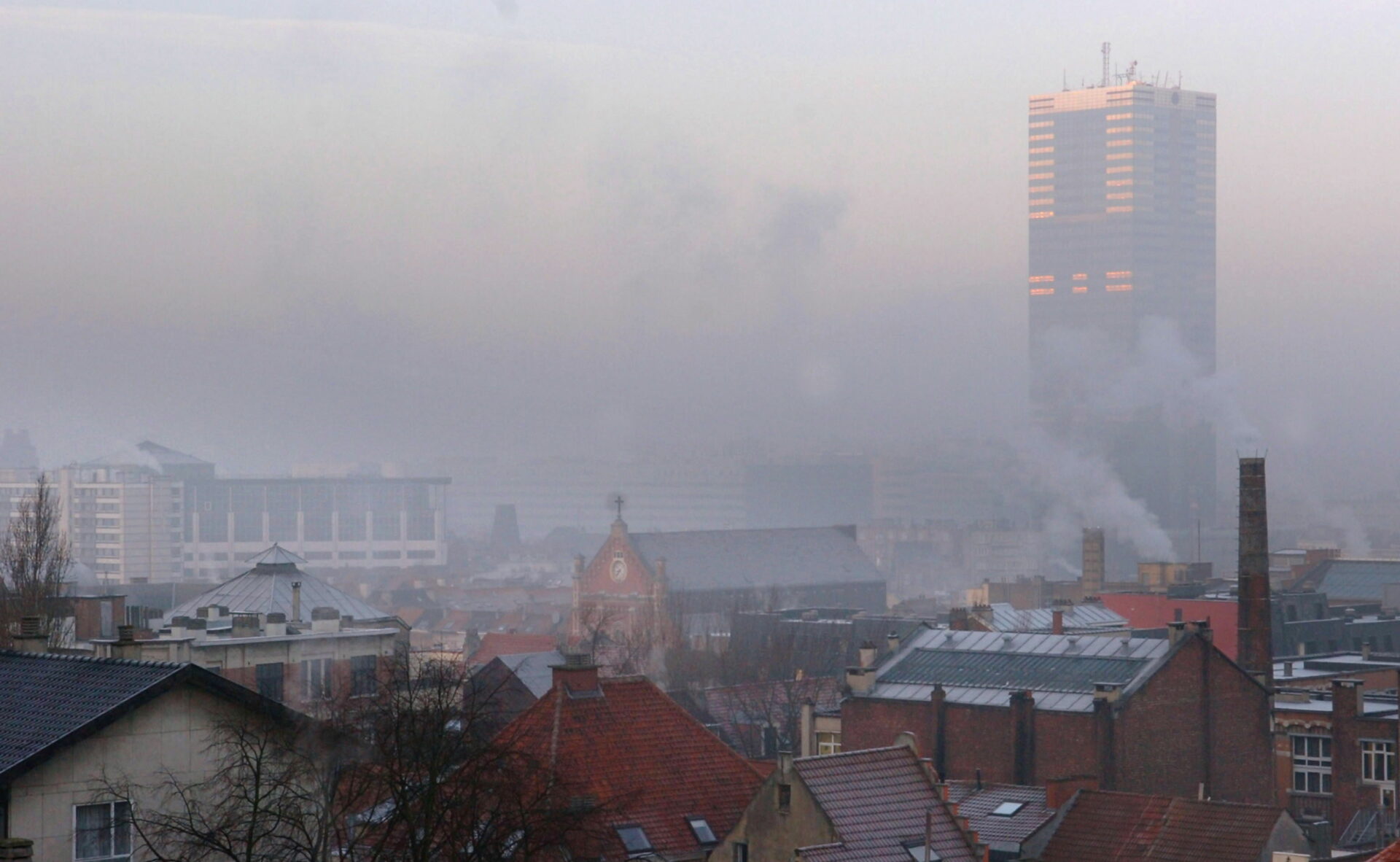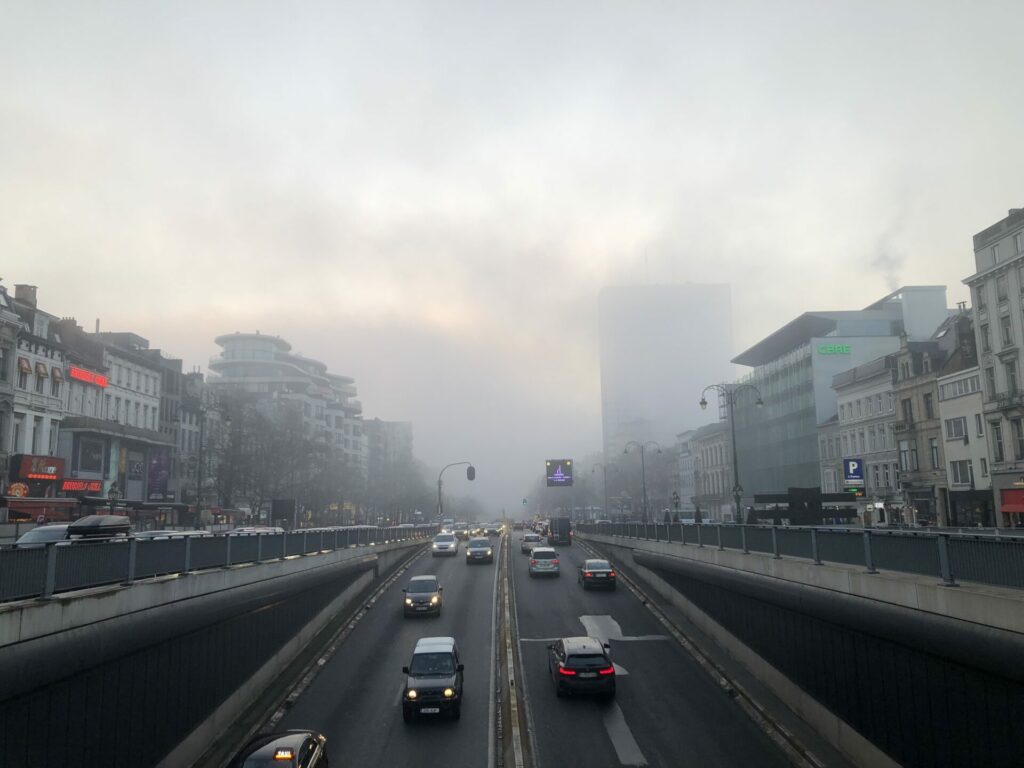Anyone venturing outdoors in Brussels during these cold winter days will likely have noticed it is harder to breathe. The persistent cold weather plays a key role in this. Luckily, air quality will soon improve.
Belgium has experienced a cold spell for several days now, with temperatures hovering around freezing. The country has also seen rising air pollution levels, largely caused by emissions from heating buildings and traffic.
"Concentrations of fine particles (PM2.5) and nitrogen dioxide are higher than average for this time of year," Brussels Environment spokesperson Pascale Hourman told The Brussels Times.
For several days, high concentrations of PM2.5 have been measured in the air. Breathing in high levels of this pollutant, considered one of the most dangerous to people's health, can increase the risk of health problems like heart disease and asthma.
In Flanders, the 'information threshold' of 35 µg/m³ of PM2.5 was exceeded on Monday, posing a health risk to particularly vulnerable population groups. No thresholds were exceeded in Brussels, but high levels (27 µg/m³) of PM2.5 were recorded. "The air quality in Brussels is described as mediocre," said Hourman.
Cold weather to blame
There is a dual explanation for this worsening air quality, both tied to the cold weather. On the one hand, emissions have increased, especially from wood-burning stoves and people turning up their heating to stay warm.
"But we are also facing weather conditions that are not conducive to the dispersion of pollutants," said Hourman. This is due to thermal inversion, an atmospheric phenomenon in which a layer of warm air covers a layer of cold air on the ground, creating a "lid".

Credit: Belga
Normally ground-level air is warmer, allowing pollution to escape upwards. But when the air on the ground gets colder, it prevents pollutants from dispersing in the atmosphere. Simply put, there is less "space" for pollutants to leave the air people breathe in. Combined with weaker winds in Belgium, this increases the chances of pollution peaks.
Health risks
The increased fine dust concentrations can cause health problems. Vulnerable groups such as young children, the elderly and people with lung or heart diseases are particularly at risk. They may experience reduced respiratory function and an increase in respiratory illnesses. People with no health conditions may also feel the effects when doing intensive sports.
Fine dust particles can also infiltrate homes, meaning staying indoors will not protect people.
For now, Brussels Environment is advising vulnerable people to avoid exposure to pollutants and strenuous physical exercise. "Residents can also take action to reduce pollution by, for example, limiting their heating to 19°C or 20°C, and walking, cycling or taking public transport rather than driving," Hourman noted.

Credit: Belga / Etienne Ansotte
Concentrations of pollutants are expected to remain high for some time. In Flanders, the information threshold is expected to be exceeded for at least 24 hours. It is likely no air quality alert will be activated in Brussels.
However, the situation is expected to improve in the coming days. "Tuesday will be sunnier but the wind will remain light," Hourman explained. "A change in the weather is expected from Wednesday: the wind strength will increase significantly and a rain zone will cross the country. As a result, air quality will improve."

